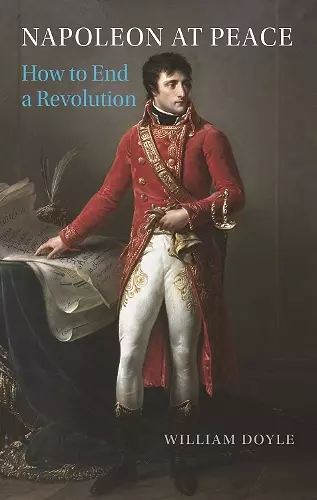Napoleon at Peace
How to End a Revolution
Format:Hardback
Publisher:Reaktion Books
Published:15th Aug '22
Should be back in stock very soon

The French Revolution facilitated the rise of Napoleon Bonaparte, but after gaining power he knew that his first task was to end it. In this book William Doyle describes how he did so, beginning with the three large issues that had destabilized revolutionary France: war, religion and monarchy. Doyle shows how, as First Consul of the Republic, Napoleon resolved these issues: first by winning the war, then by forging peace with the Church and finally by making himself a monarch. Napoleon at Peace ends by discussing Napoleon’s one great failure – his attempt to restore the colonial empire destroyed by war and slave rebellion. By the time this was abandoned, the fragile peace with Britain had broken down, and the Napoleonic wars had begun.
ISBN: 9781789146172
Dimensions: unknown
Weight: unknown
232 pages